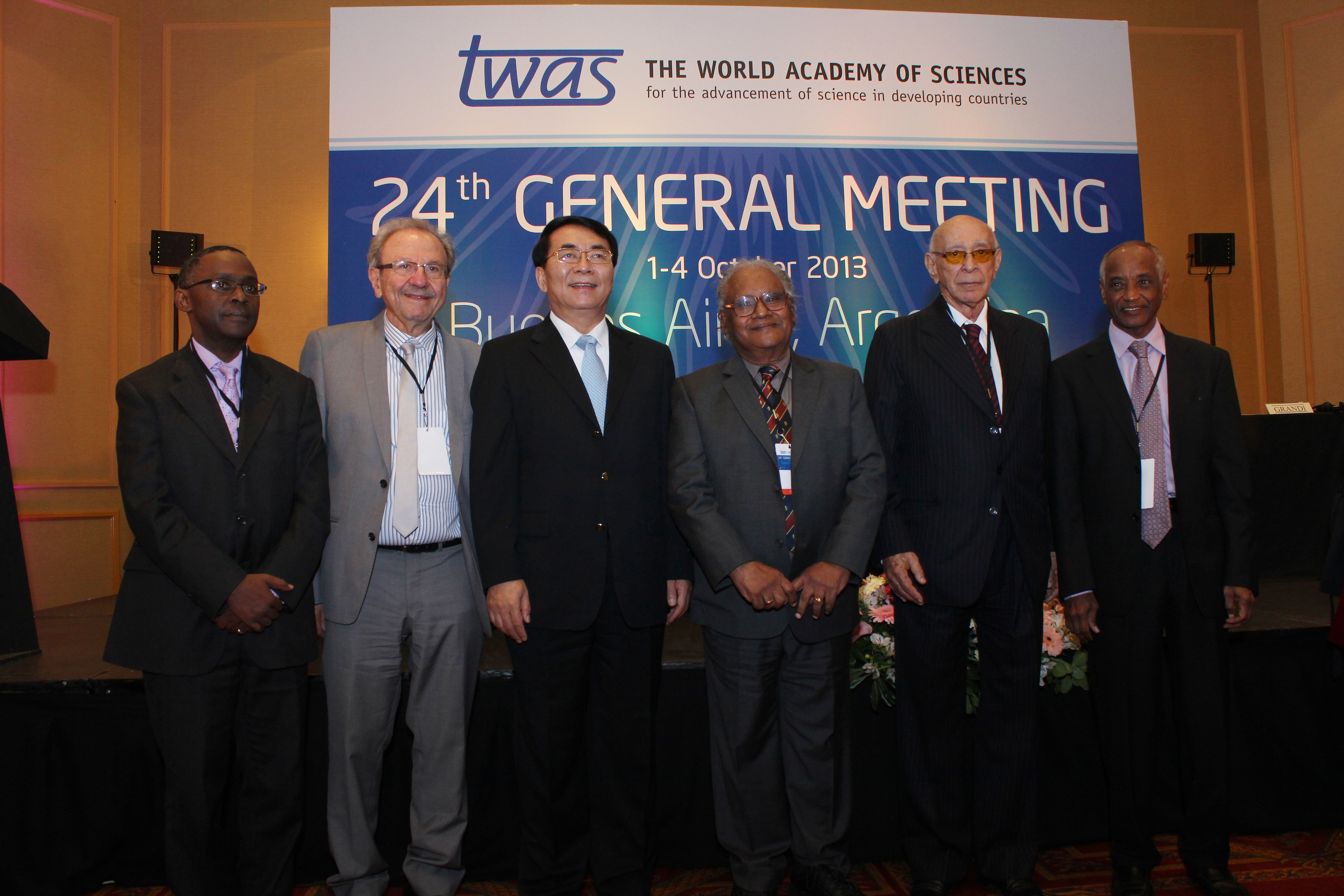
It is with profound sorrow that we mourn the passing of our esteemed colleague and cherished friend, Prof. José Israel Vargas, on 15 May 2025. His departure comes just one week after the loss of our esteemed friend Jacob Palis.
A TWAS Fellow since 1998, Prof. Vargas was a pivotal figure in the history of TWAS, serving as its second President from 1996 to 2000, following the founding President Prof. Abdus Salam. During the initial two years of his presidency, Prof. Vargas simultaneously held the position of minister of science and technology in the Brazilian government of President Fernando Henrique Cardoso, a TWAS Fellow since 1984.
His election as TWAS president was truly remarkable, coming at a critical juncture when TWAS faced two pressing challenges: the need to significantly enhance its visibility and influence in Latin America—bringing it on par with its well-established presence in Asia and Africa—and the need to mobilise governmental support for the newly launched TWAS Endowment Fund.
Prof. Vargas's contributions to addressing these vital issues were substantial and impactful. As Brazil's minister of science and technology and a prominent figure in scientific and developmental spheres across Latin America, he was instrumental in elevating the Academy's profile not only in Brazil but throughout the entire region. His efforts were strongly supported by President Henrique Cardoso, who held TWAS in high regard, fondly referring to it as "my academy."
In 1997, under Prof. Vargas' presidency and with President Cardoso's backing, the TWAS General Conference was held in Rio de Janeiro, marking the first time the event was held in Latin America. Organising the Conference in Brazil not only raised the Academy's profile in Latin America but also laid the groundwork for future conferences across the region.
Equally transformative was Prof. Vargas’s success in securing Brazil’s landmark first contribution to the TWAS Endowment Fund, an action that galvanised similar support from countries such as Kuwait, China, India, Nigeria, and Mexico, alongside contributions from other countries.
Moreover, Prof. Vargas played a pivotal role in enhancing the prestige and influence of TWAS within UNESCO. During his tenure as chair of UNESCO's Executive Board and later as Brazil's representative to the organisation, he built strong partnerships between TWAS and senior UNESCO management and ambassadors from various countries. He contributed to and witnessed the signing of the historic agreement between UNESCO and the Italian government to provide permanent funding to TWAS and IAP through UNESCO.
My collaboration with Prof. Vargas during his five-year presidency at TWAS was an exceptionally rewarding experience. As the executive director of TWAS, I had the privilege to work closely with him, and I deeply appreciated the inspiration and wisdom he brought to each interaction. Our numerous meetings and discussions in cities such as Trieste, Paris, Rome, and Brasilia were focused on enhancing TWAS’s visibility and securing funding for the TWAS Endowment Fund and its various programmes. His efforts in raising the image and the importance of TWAS within the scientific and policy communities in Latin America and beyond have paved the way for future growth and development of the Academy.
To Prof. Vargas’s family, friends, and colleagues, we extend our deepest condolences. His passing leaves an irreplaceable void, but his contributions to the development of TWAS and the development of science and technology in Brazil and Latin America will endure for generations to come.
Rest in peace, dear friend.
Mohamed Hassan,
Immediate Past President of TWAS

